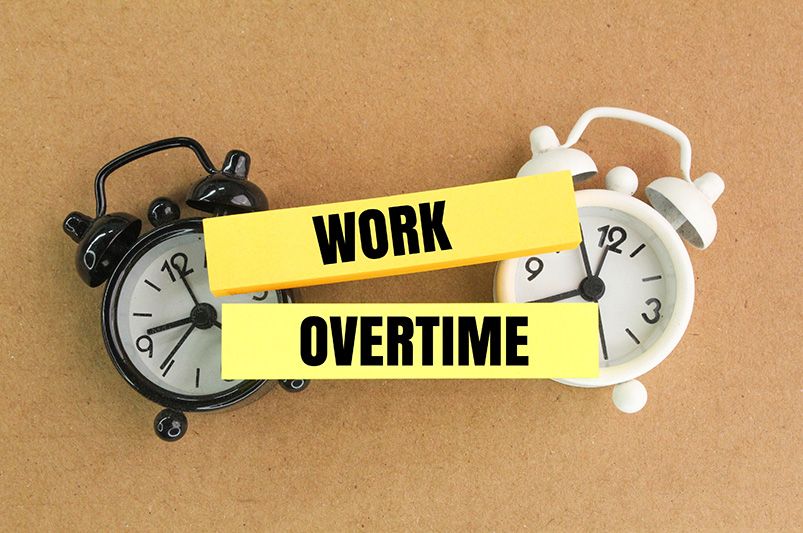Unpaid Overtime & Off-the-Clock Work: Recovering Wages in California
Published: 23/09/2025 | Updated: 23/09/2025
Long hours, late nights, and early mornings are common in many California workplaces. But when your employer asks you to put in extra time without paying you fairly, that’s not “just part of the job.” It’s a violation of California wage and hour laws.
Unpaid overtime, wage theft, and off-the-clock work affect thousands of workers across the state each year. These practices not only cheat employees out of their hard-earned wages but also put employers at risk of serious legal consequences.
In this guide, we’ll explain:
-
What California overtime and wage laws require.
-
How off-the-clock work is treated under the law.
-
Common signs of wage theft.
-
Steps you can take to recover unpaid wages.
-
How JusticeGuys can help you fight back.
Understanding Overtime in California
California’s overtime rules are some of the most protective in the nation. Unlike federal law, which only mandates time-and-a-half after 40 hours in a week, California law provides broader coverage.
-
Time-and-a-half pay is required if you work:
-
Over 8 hours in a single workday.
-
Over 40 hours in a workweek.
-
The first 8 hours on the seventh consecutive day of work in a week.
-
-
Double-time pay is required if you work:
-
Over 12 hours in a single workday.
-
Over 8 hours on the seventh consecutive day of work in a week.
-
Failing to pay these rates is not just a payroll mistake — it’s wage theft.
What Is Off-the-Clock Work?
Off-the-clock work happens when employees are expected to perform job duties before clocking in or after clocking out — without pay.
Examples include:
-
Pre-shift meetings or prep work.
-
Putting on or removing required safety gear (known as “donning and doffing”).
-
Checking emails or responding to calls after hours.
-
Closing up shop after clocking out.
-
Required training or meetings outside regular hours.
California law is clear: If your employer requires the work, you must be paid. Any time spent performing job-related tasks counts as compensable time.
Common Forms of Wage Theft in California
“Wage theft” is a broad term that covers many ways employers may illegally withhold pay. In addition to unpaid overtime and off-the-clock work, it includes:
-
Meal and Rest Break Violations: Not providing legally required breaks or pressuring employees to work through them.
-
Misclassification: Labeling employees as “independent contractors” or “exempt” to avoid paying overtime.
-
Flat Salaries: Paying a flat weekly amount without considering overtime hours worked.
-
Tip Theft: Managers or owners taking a portion of earned tips.
If you’re missing hours or wages from your paycheck, there’s a good chance wage theft is to blame.

Steps to Recover Unpaid Wages
If you suspect unpaid overtime or off-the-clock work, here’s what you can do:
-
Document Everything
-
Keep a personal record of hours worked, including overtime and tasks done off the clock.
-
Save emails, text messages, or schedules that show you were required to work extra time.
-
-
Compare With Pay Stubs
-
Review your pay stubs for missing overtime pay or unexplained deductions.
-
-
Speak With HR (If Safe to Do So)
-
Sometimes errors are corrected internally. But if the issue is systemic, HR may not provide a solution.
-
-
File a Wage Claim With the California Labor Commissioner
-
The Labor Commissioner’s Office investigates wage theft claims. You may be entitled to unpaid wages, penalties, and interest.
-
-
Consult With a Lawyer
-
An experienced California employment lawyer can assess your case, represent you, and fight for maximum compensation.
-
Why Legal Representation Matters
While California offers strong protections, pursuing a claim on your own can be overwhelming. Employers often deny wrongdoing, destroy records, or attempt to intimidate employees. A lawyer ensures:
-
Deadlines and legal requirements are met.
-
Evidence is preserved and strengthened.
-
Settlement negotiations reflect the full value of your claim.
-
You’re protected from retaliation.
JusticeGuys Can Help
If you’ve been forced to work off the clock, denied overtime pay, or suffered from wage theft, you don’t have to fight alone.
At JusticeGuys, we connect you with trusted California employment lawyers who will review your situation, explain your rights, and help you recover every dollar you’ve earned.
Contact JusticeGuys today to take the first step toward recovering your unpaid wages.
Downloadable Resource
Download Our Free Guide: “Recovering Unpaid Wages in California”
Inside this checklist, you’ll find:
-
A quick-reference guide to California overtime laws.
-
Examples of off-the-clock work to watch for.
-
Documentation tips to strengthen your case.
-
A step-by-step outline of how to file a wage claim.
Click here to download your free guide and start protecting your rights today.
FAQs About Unpaid Overtime & Off-the-Clock Work in California
1. What is considered unpaid overtime in California?
Any hours worked over 8 in a day or 40 in a week without proper overtime pay. Double time applies after 12 hours in a day.
2. Can my employer require me to work off the clock?
No. California law requires that all time spent performing job duties be compensated.
3. What should I do if I suspect wage theft?
Keep records of hours worked, review pay stubs, and consult with an employment lawyer or the Labor Commissioner.
4. How long do I have to file a wage claim in California?
Generally, you have three years to file a claim for unpaid wages, but deadlines vary depending on the situation.
5. Can my employer retaliate against me for filing a claim?
No. Retaliation is illegal. If it happens, you may have an additional legal claim.